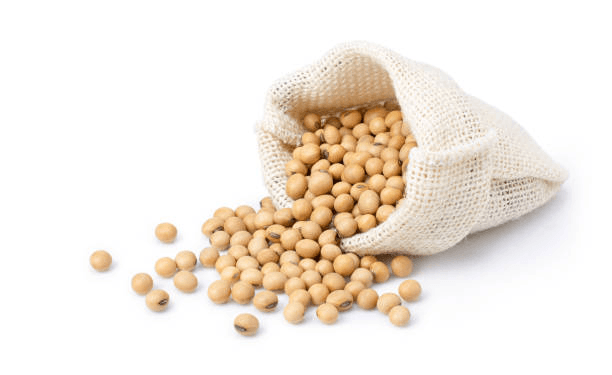Did you know soybeans are legumes that are primarily grown in East Asia and the U.S. The plant produces a crop harvest of soybeans used in various foods, additives, and formulas. Soybean products are widely eaten worldwide as cooking oil, made into soy milk, ground into meals, used for protein bars, and fermented for tofu and tempeh. Other common references for soybeans comprise soya beans, edamame, and jack or butter bean.
You can purchase soybeans through ussoy.org, which connects soy farmers in the U.S and provides the best soy in the market. U.S. Soy provides excellent U.S. Soy in a quest to transform global nutrition and support progress for communities worldwide. This article looks at soy’s uses, benefits, and nutritional value.
Uses Of Soybeans
Soybeans are grown on about 80% of the world’s soybean acreage. They are mainly used for human and animal consumption, in cosmetics, snack foods, pet food, health and beauty products, and feed for livestock. Below are detailed uses of soybeans you just can’t ignore:
- Soybeans are consumed as food by humans. Besides, they contain sets of essential amino acids essential to humans. Moreover, soybeans also comprise all nine essential fatty acids (EFAs), including two groups of EFAs that humans cannot produce: linoleic acid (L.A.) and alpha-linolenic acid (ALA), found in flaxseed oil.
- Soybean oil has been used as cooking oil since ancient times. Soybean oil contains no trans-fats or cholesterol, making it a healthier alternative to other cooking oils such as canola or olive oil. The polyunsaturated fats in soybean oil may help lower LDL cholesterol (bad cholesterol) levels while raising HDL (good cholesterol).
- Soybeans, also known as soy nuts, produce tofu, tempeh, and miso. Tofu is a soft, white block made from soy milk, while tempeh is a fermented soybean cake with a nutty flavor and firm texture.
Benefits of Soybeans
Like most legumes, soybeans also have many health benefits, and the best way to benefit from them is by consuming them in their natural state. You can eat soybeans fresh, boiled, or roasted; they are also used to make a variety of products, such as tofu and tempeh. Below are the benefits associated with adding soybeans to your diet:
- Soybeans can substitute for animal-based protein sources such as meat, milk, and eggs. They can also make soy milk, tofu, and other vegan foods. Soybeans are often criticized for their high levels of phytic acid, which inhibits the absorption of minerals like iron and calcium. However, recent studies show that eating soy products may reduce the risk of certain types of cancer, including breast cancer, prostate cancer, and colon cancer, among others.
- Soybeans improve physical performance. Soy contains plenty of plant-based proteins, which may improve your physical performance compared to meat-based proteins such as beef or chicken breast. Some studies suggest that consuming soy protein supplements before exercise may increase muscle strength by around 8%.
- Soybeans also contain isoflavones, a type of phytoestrogen that mimics the effects of estrogen in the body. Isoflavones reduce the risk of hormone-related cancers such as breast, prostate, and uterine cancers.
Nutritional value of soybeans
The United States imports more than half of its soybeans from Brazil and Argentina. However, domestic production has increased significantly over the past decade due to new crop production technology development. Many people are now aware of the nutritional benefits of soy, which has dramatically increased its demand. Some nutritional benefits of soybeans include:
- Soybeans contain a variety of vitamins and minerals such as vitamin K, B1 (thiamine), B2 (riboflavin), B3 (niacinamide), B5 (pantothenic acid), B6 (pyridoxine hydrochloride), Folate and vitamin E.
- Soybeans contain omega-3 fatty acids, which are beneficial for heart health; they may reduce the risk of developing heart disease by reducing triglycerides and lowering cholesterol levels in the bloodstream.
- One cup of cooked soybeans provides about 15 percent of the recommended protein intake with a 35 percent daily value for iron; this makes it an excellent source for vegetarians who cannot get enough iron from other food sources. Soybean consumption is associated with decreased risk for coronary heart disease in men but not women; it has been found that men who eat 20 grams daily have lower LDL cholesterol levels than men who don’t.
Conclusion
The seeds can be used in a variety of ways to bring about benefits when they are consumed. Be it the sprouts, their cotyledons, or the full-grown beans; soybeans come bursting with nutrients that are good for overall well-being. The variety of products such as soybean oil, soy sauce, and tofu derived from soybeans makes them a popular item in any home.
Soybeans are also rich in carbohydrates, dietary fibers, vegetable protein, polyunsaturated fats, and essential amino acids, including all eight essential amino acids that the human body cannot synthesize. They are low in saturated fats, cholesterol-free, and sodium free. The oil extracted from soybean is an edible vegetable oil used for cooking. It is also used as a replacement for cocoa butter in chocolate making.




















































